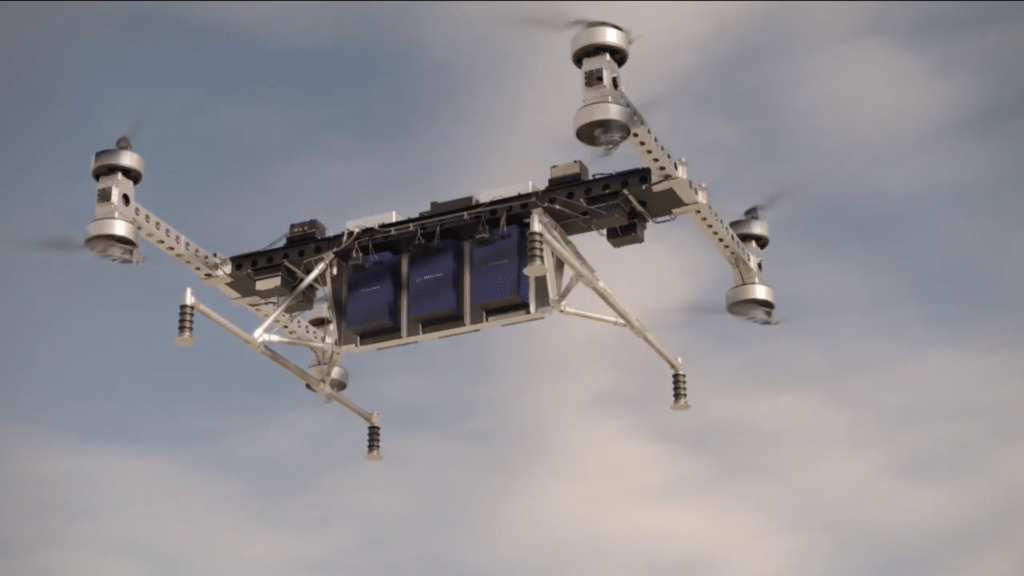
Boeing unveiled its Cargo Aerial Vehicle. Image courtesy of Boeing
Boeing has a design for a cargo drone. The manufacturer said this new unmanned, electric, vertical-takeoff-and-landing (eVTOL) aircraft prototype is also a test bed for future vehicles.
“This flying cargo air vehicle represents another major step in our Boeing eVTOL strategy,” said Boeing CTO Greg Hyslop. “We have an opportunity to really change air travel and transport, and we’ll look back on this day as a major step in that journey.”
The cargo air vehicle (CAV) is designed to transport a payload up to 500 pounds for possible future cargo and logistics applications, Boeing said. The prototype would be powered by an environmentally friendly electric propulsion system and outfitted with eight counter-rotating blades. It measures 15 feet long, 18 feet wide and four feet tall and weighs 747 pounds.
“Our new CAV prototype builds on Boeing’s existing unmanned systems capabilities and presents new possibilities for autonomous cargo delivery, logistics and other transportation applications,” said Steve Nordlund, VP of Boeing HorizonX — the manufacturer’s venture arm. “The safe integration of unmanned aerial systems is vital to unlocking their full potential. Boeing has an unmatched track record, regulatory know-how and systematic approach to deliver solutions that will shape the future of autonomous flight.”
Prototype development was led by Boeing HorizonX, along with partners in Boeing Research & Technology. The manufacturer noted that the prototype complements the eVTOL passenger air vehicle prototype aircraft in development by Aurora Flight Sciences, its new subsidiary.
A team of engineers and technicians across the company designed and built the CAV prototype in less than three months, Boeing said. Initial flight tests at Boeing Research & Technology’s Collaborative Autonomous Systems Laboratory in Missouri have also been successfully completed.